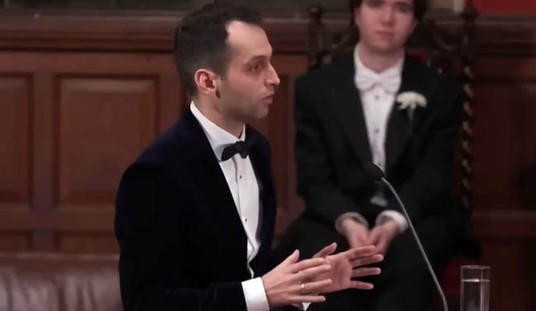When former Republican Study Committee chairman and House Majority Whip Rep. Steve Scalise (R-LA) came under fire for allegedly speaking to a white supremacist organization in 2002, he found himself short on friends among the influential conservative grassroots.
Prominent conservatives like former Alaska Gov. Sarah Palin, RedState’s Erick Erickson, and radio host Mark Levin joined a number of moderate Republicans who initially demanded that the GOP House leadership jettison their troublesome member. When the controversy broke, some conservatives argued that Scalise’s racially questionable past would make it harder for the GOP to appeal to minority voters. Others, however, harbored a grudge from Scalise’s tenure as RSC chairman and saw his troubles as an opportunity to exact revenge.
In late 2013, Scalise removed RSC Executive Director Paul Teller from his post after he was accused of leaking sensitive conversations among RSC members to outside advocacy groups in order to influence the committee’s decision-making. The move came at a sensitive time as Republicans were engaged in an internal squabble over whether to support Rep. Paul Ryan’s (R-WI) proposed budget, a measure that many of the House GOP’s conservative members opposed.
Teller’s many supporters were outraged over his removal. “Teller’s reputation is rooted in his grassroots approach to politics, which sometimes prizes conflict over compromise,” The National Journal reported at the time. “Under his direction, the RSC has witnessed several intense ideological battles–both internal and external–that have cemented his status on Capitol Hill as a conservative agitator.”
“Paul Teller has a sterling reputation and has been a senior staffer at the RSC for many years,” Levin wrote. “This is nothing short of a purge.”
“Teller’s job was to work with conservatives in the House and outside groups to form and promote a conservative agenda,” he added. “[House Speaker John] Boehner needs to go, and Scalise has single-handedly destroyed the RSC, which can no longer be trusted to advance conservative principles.”
“Sterling reputation” or not, the charge that Teller broke ranks and sought to influence the committee’s internal deliberations by leaking documents to outside groups is a serious one. It reflected a lack of discipline on the part of the former executive director, and that is something that no organizational leader can tolerate.
Both Teller and Scalise are gone from the RSC today, but a lack of discipline among that committee’s conservative members appears ingrained in its culture. On Tuesday, The National Journal reported that the RSC’s conservatives are plotting a revolt.
“The members have been talking for weeks, and met Monday night to formalize their plans to institutionalize a competing, invitation-only organization that they see as a real conservative caucus that can push Speaker John Boehner rightward,” the report revealed.
Once a bastion for the conservative movement, the RSC has strayed too far from its original mission and been co-opted by the same party leaders it is meant to exert pressure upon, the members believe.
The new group, which does not yet have a name, will be led by former RSC Chairman Jim Jordan. It will also include Rep. Mick Mulvaney, who lost an election to become the chairman last year, disappointing many conservatives. The other founders are Reps. Justin Amash, Ron DeSantis, John Fleming, Scott Garrett, Raul Labrador, Mark Meadows and Matt Salmon. Most but not all of those members are expected to renounce their RSC memberships, along with other members who will join the group.
Also: Heritage Action got into rift with RSC last year. This new, more-exclusive RSC likely to be much more simpatico http://t.co/JHIlUNMuwO
— Josh Kraushaar (@HotlineJosh) January 13, 2015
This new conservative group, which will apparently seek to exclude the House GOP’s more pragmatic members, will certainly be harder for leadership to control. It will also be smaller, more ideologically homogenous, and much less influential. That seems to be how these members like it.
There is an argument to be made in favor of this move. Conservatives have a point when they say that Scalise’s tenure as RSC chair largely neutered the committee as a voice of opposition to the party’s more moderate members. Obtaining membership in the RSC is not cheap (yes, House members pay for the privilege), and those who claim that the RSC is no longer worth the price of admission are not without cause. Some chafe over the evolution of that institution, which they say has become merely an arm of leadership designed to confer legitimacy on the predeterminations of leadership. “The RSC today covers a fairly broad philosophical swath of the party,” Mulvaney lamented last year. “It’s no longer just the hard-core right-wingers,”
Others argue that Rep. Bill Flores (R-TX) — a member of the class of 2010, the RSC’s current chair, and a vocal opponent of the conservative mutiny – is no better than Scalise in that he is both loyal to leadership and seeks to advance within its ranks. These are all valid concerns. It is, however, difficult to see what is accomplished by the conservative threat to bolt from the committee. By contrast, it is easy to identify what they are sacrificing.
What might be accomplished as part of an organization with a track record of success, one designed to serve as the House Republican leadership’s conservative conscience, will now be far more difficult as these members have intentionally sidelined themselves. By creating a sequestered group that achieves nothing more than self-validation and facilitates only the nursing of grievances, these conservative members have embraced marginalization. As members of a small minority House GOP Conference, these conservative insurrectionists might enjoy more success in this endeavor. As part of a large, diverse majority GOP Conference, the broadest Republican majority the nation has seen since the 1920s, they can be safely ignored.
From the perspective of Republican House leadership, the decision by these conservatives to blow up the RSC is a miraculous boon. From their perspective, they have been freed of a nagging group of purists who regularly hectored leadership to remain true to their principles and their base supporters. Instead, House GOP leaders can now cite the support of a more moderate RSC when they push their members to cast controversial votes.
The threat of House conservatives to walk out of the RSC is not strategy, it’s petulance. And no one will welcome this maneuver more than the Republican leaders they are supposedly protesting.









Join the conversation as a VIP Member